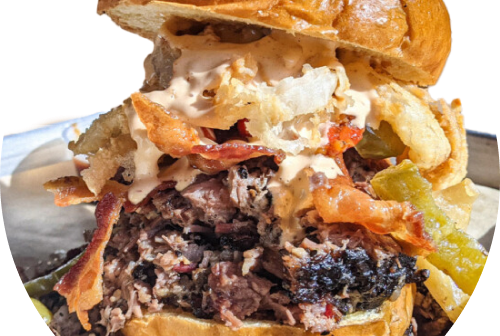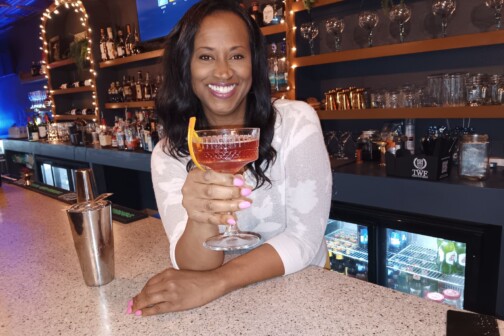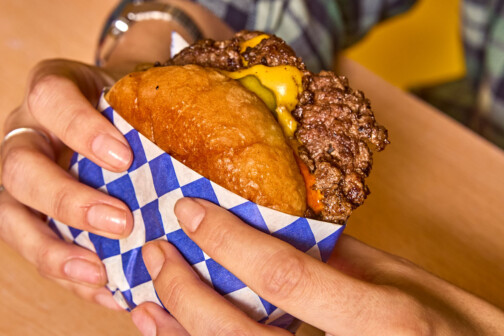Welcome to In the Weeds, our series in which Dallas restaurateurs explain behind-the-scenes aspects of the food service business—parts of the job that customers never see.
Today our panelists are giving advice to newcomers. Do you ever dream of opening your own bar, restaurant, or coffee shop? Read this story first.
Meet our experts:
- Sawsan Abublan, co-owner of fast-casual chain Shawarma Press
- Tanner Agar, co-owner of upscale restaurant Rye and cocktail bar Apothecary
- Jon Alexis, restaurateur behind TJ’s Seafood, Malibu Poke, Escondido, and Ramble Room
- J.R. Muñoz, owner of the bars Will Call and Elm Street Saloon
- Brent and Juan Reaves, co-owners of Smokey John’s Bar-B-Q
Here is the advice they tell me they would give to any prospective first-time restaurant owners. (My comments and subject transitions are in italics.)
Read part one: What Must Happen Before a Restaurant Can Open?
Part two: How Do Restaurants Choose Their Locations?
Part three: What Are the Most Surprising Hidden Costs of the Restaurant Business?
Part four: How and When Do Restaurants Decide to Raise Prices?
Part five: What Is the Right Number of Employees for a Restaurant?
Part six: What Changes When a Restaurant Opens a Second Location?
Part seven: How Are Dallas Diners Evolving?
Loving to cook and loving to run a business are two very different things
The first and most important piece of advice was this: passion is not enough. Being a good cook is not enough. If you think you should open a restaurant because you cook good food, you’re about to get a reality check.
Tanner Agar: You need to understand: a passion for cooking is not enough to make a restaurant work.
Juan Reaves: Oh, that’s the worst reason to open a restaurant!
Tanner Agar: You have to develop a passion for running a business. Which is a very different skill. Unfortunately, my ability to cook is basically no longer relevant at the company. Yes, I used to work the line every day. I used to cook and I still can. My ability to understand flavor and talk to the teams and hold our teams accountable is all important and valuable. But if I couldn’t cook at all, the restaurant would be the same, in effect.
Brent Reaves: I meet with different small business owners. I graduated from the Goldman Sachs 10,000 Small Businesses program and I’ve been involved with them for about six years now. The biggest thing I share with people is, people think, “I make a really good fried chicken and I’m gonna open a restaurant.” That’s great. Fried chicken is great. The problem is, do you know how to pay your payroll taxes? Do you know cost controls, do you know how to create pricing for your menu?
I just did one class last week. I said, tell me how you created your menu price. They didn’t know, but they had been selling foods for the last three years. People are thinking just because you’re a really good cook that you need to be creating a business. It works out well for some people. But for some people business just doesn’t work.
As a restaurant owner, you’re a business person, you’re an accountant, you’re a counselor, you’re a coach. And then now you have to also be a social media influencer.
I never want to crap on anybody’s dreams. But I try to temper expectations. The restaurant world is I guess glamorous for people, and people think you make a ton of money. They don’t know that I probably work 80 hours a week. During the State Fair we work about 90-98 hours a week. They don’t know what it takes to keep a business going.
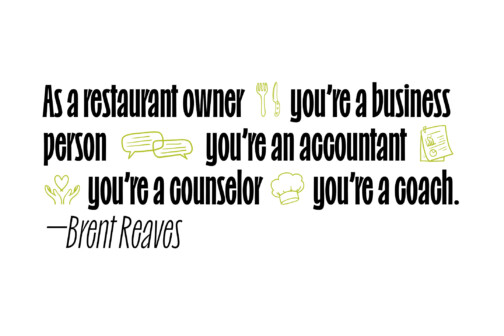
Tanner Agar: I think a big thing is making sure you have a conversation with yourself about the realities of what you’re looking at. I remember seeing a report from an association of professional bakers, where they said that the average bakery owner spends only 10 to 20 percent of their time actually baking.
Jon Alexis: Can I cook in a professional setting? You can hear my line cooks laughing from miles away at the idea of it. But I know how to make people happy. There is so much room for that today. There is a blank canvas for making people happy.
Find support groups, partners, and trusted staff
Next big piece of advice: don’t do it alone. For our restaurateurs, that idea took on a lot of different meanings. Some meant that you should step outside your own perspective and look at customers’ point of view, some meant that you should hire expert help, and some meant that a partnership with other owners makes it easier to operate a business.
Sawsan Abublan: If I was not surrounded with support systems, it was going to be very difficult to succeed and expand. Because we couldn’t afford all of that talent [when we started], we reached out to friends and family. We had a neighbor who was an accountant. He provided us with services at a discounted price, it allowed us to look good, but at the same time we didn’t have to pay a big firm. Same thing with legal support. I was able to subscribe to a company called LegalShield, and, for about $50 a month, their job is to answer phone calls for members who subscribe. I was able to call them and ask them about my employee manual, my internal policies, you know, hiring, firing, things like that.
If you’ve tried to do it alone, it’s just a matter of time before you realize that you’ve probably gotten yourself in trouble one way or another.
Tanner Agar: Do not do this by yourself. The team has been what enabled me to deal with this process, but that’s not exclusive to this situation. Having two other people to help run the restaurant, who are not a relative or a partner, it has meant a lot to us to have people to share this burden with. It’s made the highs and lows a lot better.
Jon Alexis: What’s been hard for me to realize is, me as a diner and everyone I follow on Twitter is not the majority of the dining community. That’s been hard for me. In the same way that the angriest people in politics do not represent the voting base. It’s volume in loudness, not volume in weight.
Consistency is harder than it looks
The best advice on operating your business day-to-day? Be curious and be consistent.
Jon Alexis: Being curious is a lot more work. I walk in the restaurant every day assuming that everything’s wrong and walk around until it’s proven that everything is right.
Sawsan Abublan: I always ask my regulars, “how’s the food today?” And they say, don’t ask us, it’s great as always. But my answer is, always know, I’m gonna come and ask you, because you are my repeat customer. If something is wrong, you would know. You’re not gonna stop seeing me stopping at your table and asking you how things are, because if something is wrong, you’re gonna know. And I count on you to tell me.
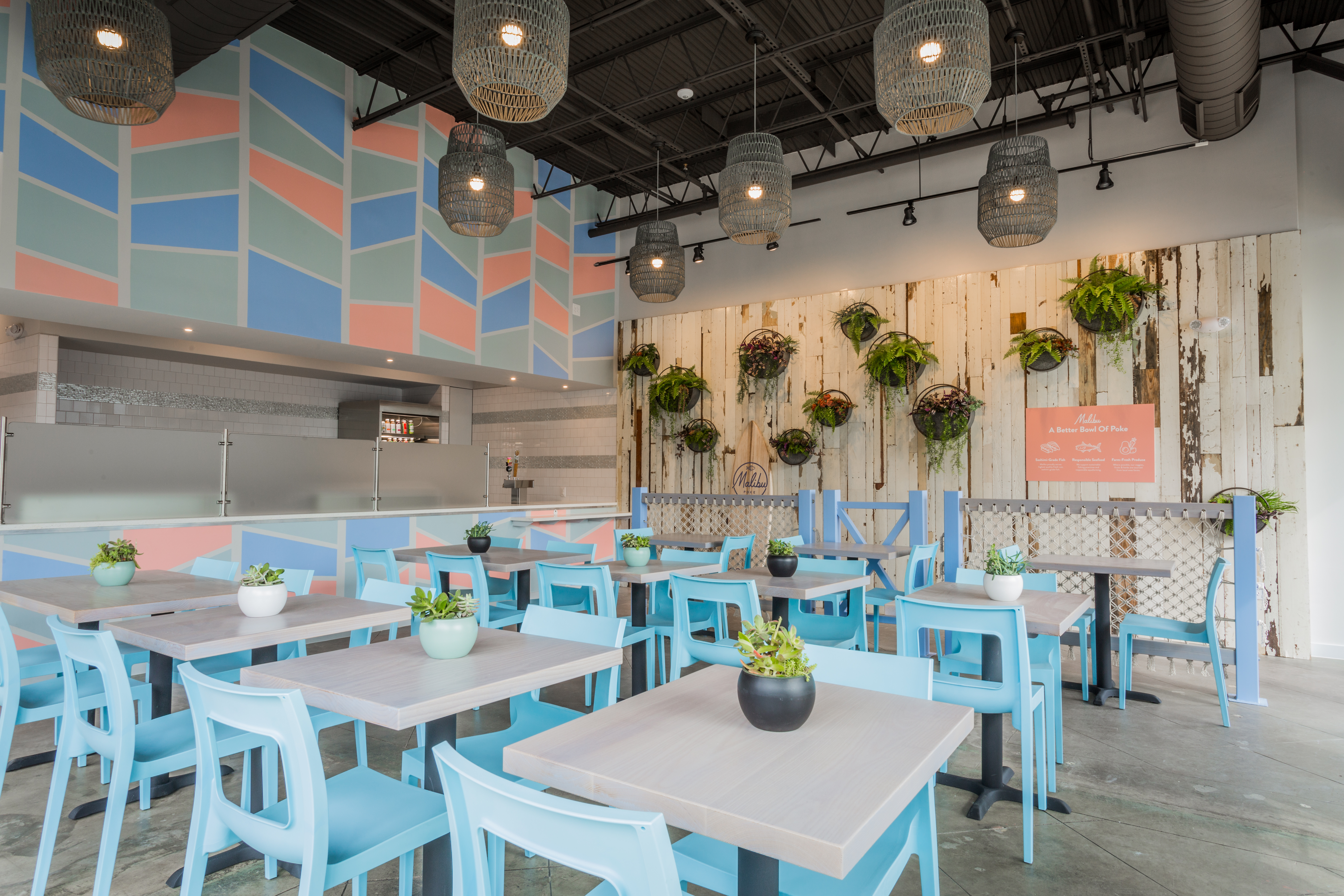
Brent Reaves: Cooking is good, but the biggest discipline is the ability to plan and then to be consistent. Look at McDonald’s. It’s the same every time you go. The French fries are the same every time you go. And for some people that just gets boring. Making sure that customer comes in and has the same experience every time, I think that’s the science of a restaurant.
It’s kind of like the preacher that has to come up with a sermon every Sunday. You can’t use the last one. Even if you hit a home run with a special, it’s got to be just like that every day. You’re creating self-pressure, you know?
Juan Reaves: If you’re a creative chef or creative person, that’s hard. You better figure out what you’re good at, and be good at it every night. Sometimes you get familiar with making the same thing over and over and it’s easier to fall a little short of great and be OK with it. Because you do it every day. Well, that person who came two months ago, they just have their memory of it being great. If it’s not great they may not come back.
OK, you opened your restaurant. Now what?
Finally, it’s important to have a goal in mind, or an exit strategy. Do you plan to start a family and have kids? Then you’d better plan for your restaurant to operate successfully without you. Do you want to go on vacation sometimes? You’re going to need to plan for that now. The best restaurateurs prepare for the long haul, because a restaurant is a long-term investment that pays off very slowly if it pays off at all. But as they’re planning to keep a business open for years, they also need to make sure they don’t burn out.
Tanner Agar: Age 25 with nothing to do but cook was fine. It was fine that we were at the restaurant 80 hours a week. We didn’t care. But you can’t do that for 10 years, so what’s the plan?
I see these people opening restaurants who say, “we want a small one.” Okay, but if it has to shut down when you go on vacation, if a family emergency comes up and you have to leave and the restaurant can’t stay open, then you’re not building yourself a business. You’re building a prison.
J.R. Muñoz: It takes time. The first five years, everybody else made money and I didn’t. But if I have that next five years, that’s when I get to profit and really experience the joys of being a business owner. Right now, it’s just working until you get everything paid off. I don’t know many restaurant owners that just started taking money home and buying boats after three years.
Before I owned my own stuff, I worked in the nightclub business, where you’re hot for two years and then you go on to the next place and you’re hot for two years there and then on to the next place. And I did that because that’s where the money was, me slinging drinks and stuff.
But I learned from all those different concepts. I don’t want to be big all at once and then just die. I’d rather be slow and steady, rather than just, you have a hot run for three years and then you ain’t nothing after that. I’d rather be cool for 10 years and last. I feel like in the end you profit a little bit more in that.
Author




